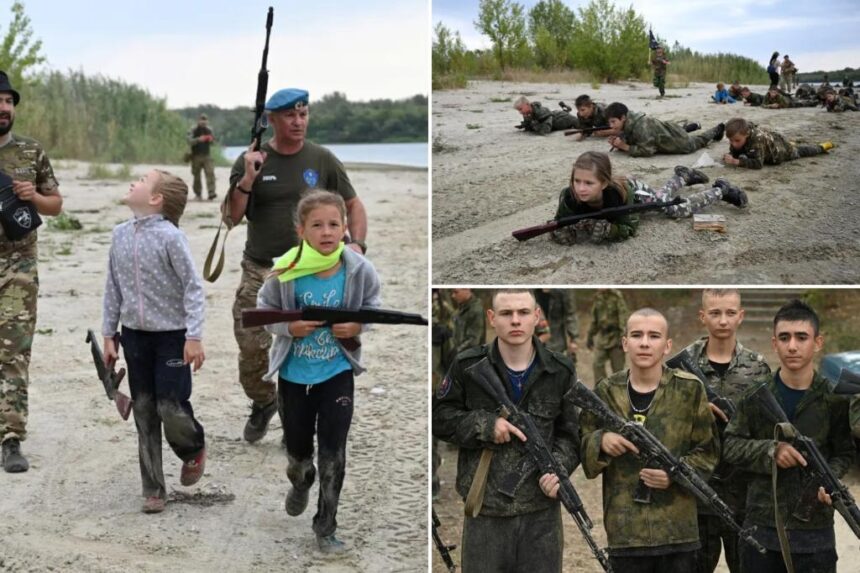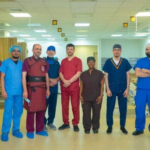The Next Generation of Russian Soldiers: Children as Young as 8 Trained in Military Camp
At a summer camp in the Rostov region of Russia, young children as little as 8 years old have been participating in military-style training exercises. Supervised by soldiers who have fought in conflicts such as the war in Ukraine, these children are being taught how to throw hand grenades, fire rifles, and navigate challenging route marches.
The camp, which is open to both boys and girls, saw 83 children aged 8-17 taking part in activities that included running, crawling, and carrying weapons while wearing camouflage uniforms. One young participant, Ivan Glushchenko, excitedly shared his experience of throwing hand grenades and firing dummy shots at the camp.
For some children, like 8-year-old David, the camp provided an opportunity to test their limits and discover their own strength and willpower. Despite the challenging nature of the exercises, the children seemed to enjoy the experience and were eager to push themselves.
The camp is part of Russian President Vladimir Putin’s efforts to instill patriotism and military readiness in the country’s youth. By exposing children to army-style training and teaching them skills like handling weapons and building military drones, Putin hopes to prepare them for eventual military service.
Critics, however, argue that these activities are a form of propaganda and indoctrination. Reports have surfaced of child labor being used in factories to build Russia’s military drones, further fueling concerns about the exploitation of young individuals for military purposes.
Despite the controversy surrounding these training camps, instructors like Alexander Shopin, who was wounded in Ukraine, believe that they are essential for fostering a sense of loyalty and patriotism among Russian youth. For children like Anton, the camp is a stepping stone towards a future in military service and a commitment to serving their country.
As Russia continues to prioritize military training for its youth, the long-term implications of such programs remain to be seen. Whether these children will grow up to become dedicated soldiers or simply carry the burden of early exposure to military activities, only time will tell.








